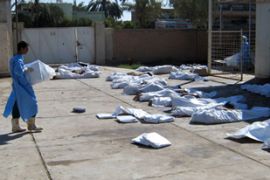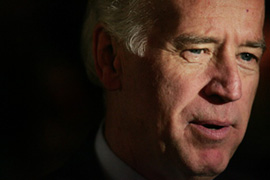US federal Iraq plan approved
Non-binding resolution approves devolving power to Sunni, Shia and Kurdish regions.

Published On 27 Sep 2007
The plan’s advocates say it offers a solution to the crisis in Iraq that could allow US troops to leave without leaving chaos behind.
The plan was agreed by 75 votes to 23 and Republicans only agreed to back it after it was amended to say that George Bush, the US president, should press for a federal system only if Iraqis want it.
Strong reservations
Turkey, a US ally, would oppose such an initiative, fearful of unrest among its Kurdish population. Ankara feels that a partitioned Iraq would lead outside powers like Iran and Saudi Arabia to boost rival ethnic armed groups.
The Iraq Study Group, a US bi-partisan body, which delivered its recommendations in December, warned that dividing Iraq could trigger mass population movements and the collapse of Iraq’s fragile security forces.
Harry Reid, the leader of the Democratic majority in the US senate, said on Wednesday the vote “reflects the important recognition by the US senate that political reconciliation must remain Iraqis’ primary goal”.
 |
|
The plan was backed by Joe Biden, the head of |
“Implementing the political solution envisioned in this legislation will help redeploy American troops from the Iraqi civil war, more effectively fight terrorism and make America more secure,” Reid said.
While Republican politicians have mostly backed Bush’s “surge” of additional troops in Iraq, many remain frustrated by the political stalemate among the country’s rival factions.
“We have a flawed political design that we are pushing currently in Baghdad,” Sam Brownback, a Republican presidential candidate and senator and one of 11 co-sponsors of the bill, said before the vote.
Kay Bailey Hutchison, a Republican senator, referred to the Dayton Peace Accords in former Yugoslavia which led to the creation of a semi-autonomous Muslim-Croat federation and a Bosnian Serb republic.
“I think what we have seen in Bosnia is a lessening of tensions when there is a capability for the security forces, the educational and the religious sects to have their own ability to govern within themselves,” she said.
Source: News Agencies